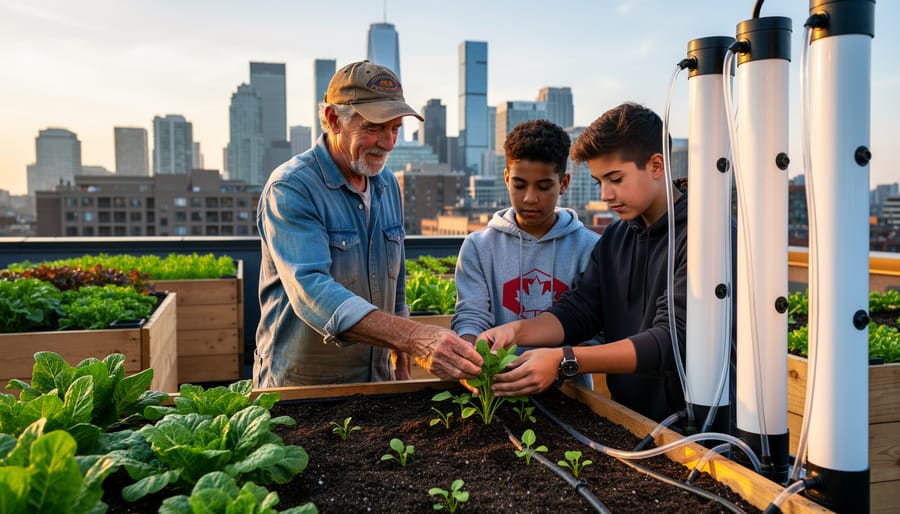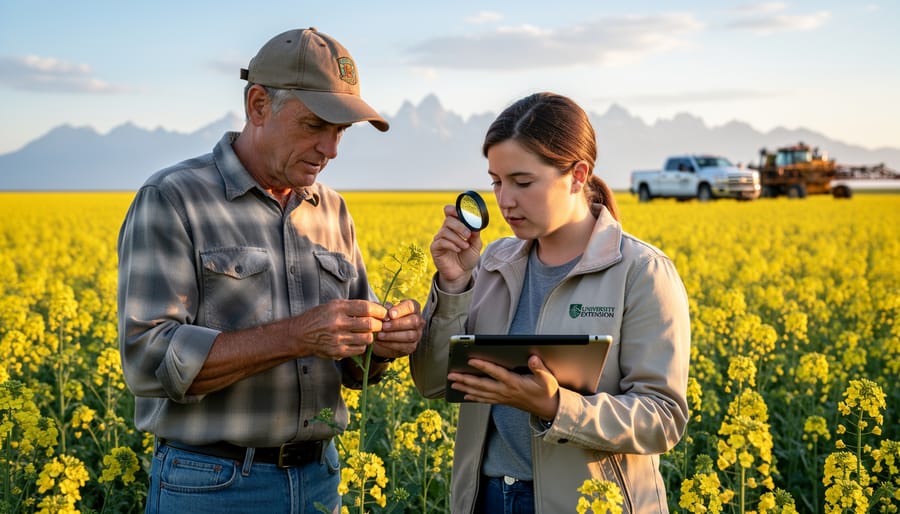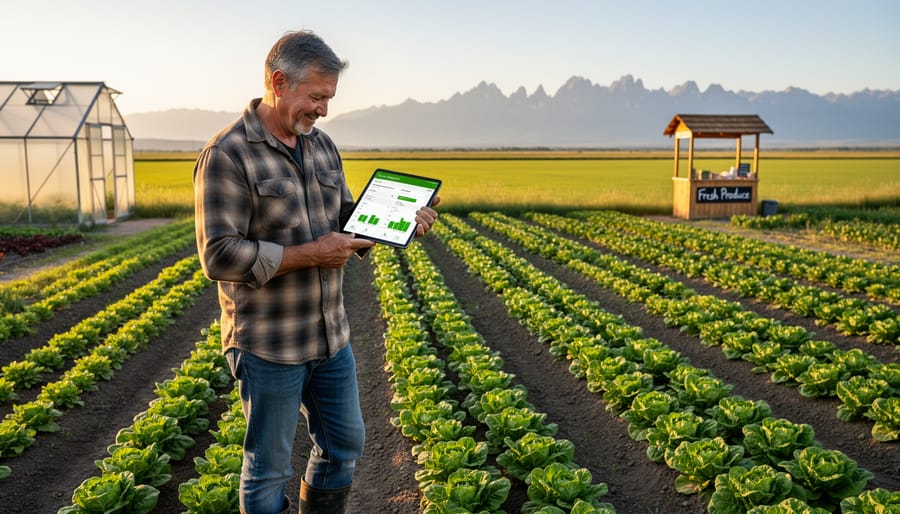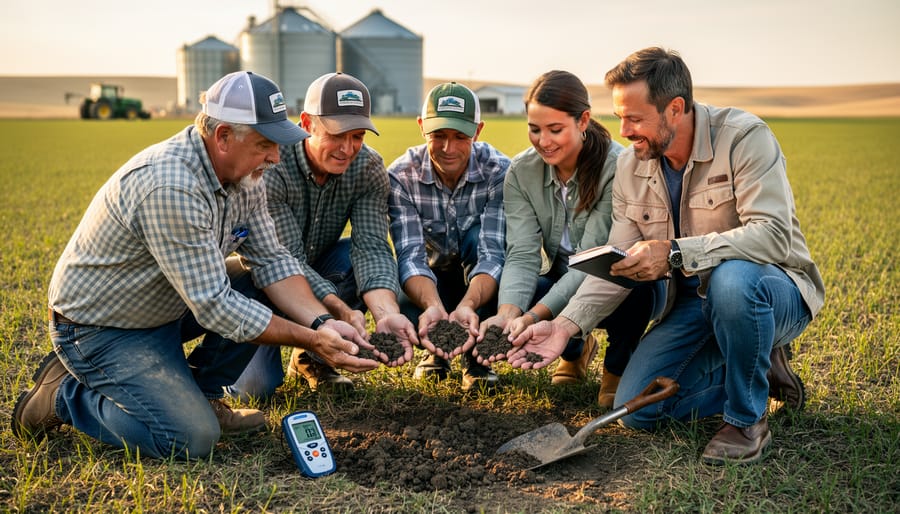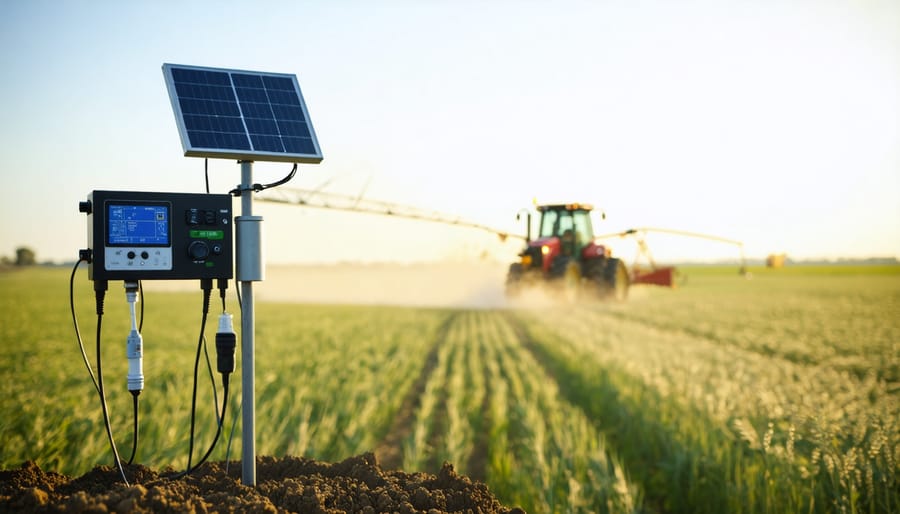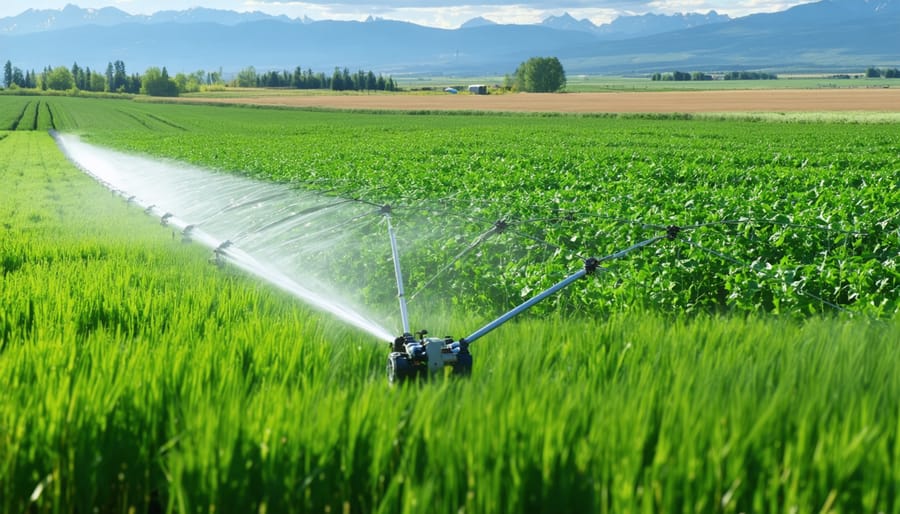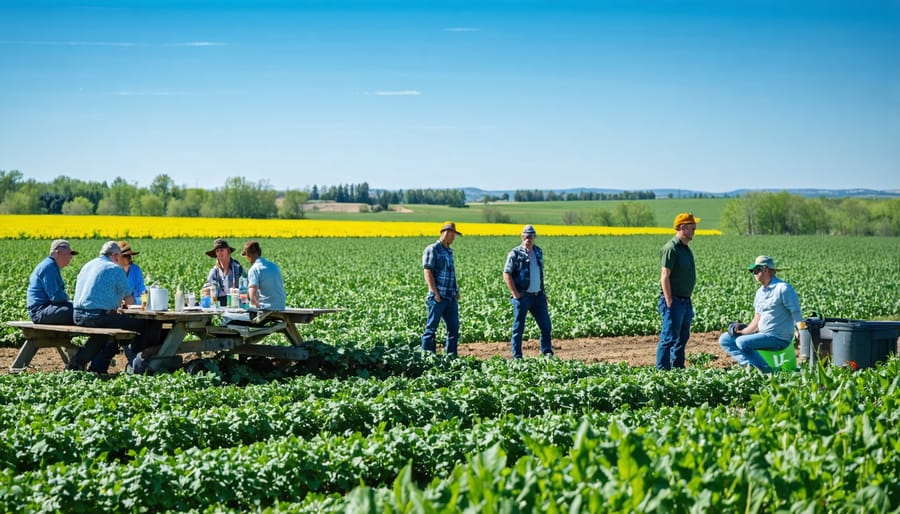Agricultural education stands as a cornerstone of Canada’s farming future, transforming classrooms into laboratories of innovation and sustainable practice. Through programs like FFA (Future Farmers of America), a new generation of agricultural leaders emerges, equipped with both traditional wisdom and cutting-edge technology. In Alberta alone, over 2,000 students participate in agricultural education programs annually, developing hands-on skills in crop science, livestock management, and agribusiness while fostering leadership capabilities that extend far beyond the farm gate.
The fusion of practical experience and academic rigor creates a unique learning environment where students don’t just study agriculture—they live it. From operating high-tech soil testing equipment to managing sustainable farming projects, these programs prepare youth for careers in Canada’s $135 billion agricultural sector. FFA chapters across the province serve as incubators for innovation, where students tackle real-world challenges like climate adaptation and food security while building the professional networks that will support their future success.
This comprehensive approach to agricultural education isn’t just shaping individual careers—it’s strengthening the entire agricultural sector, ensuring Canadian farming remains competitive, sustainable, and ready to meet the challenges of tomorrow.
The Evolution of Agricultural Education in Alberta
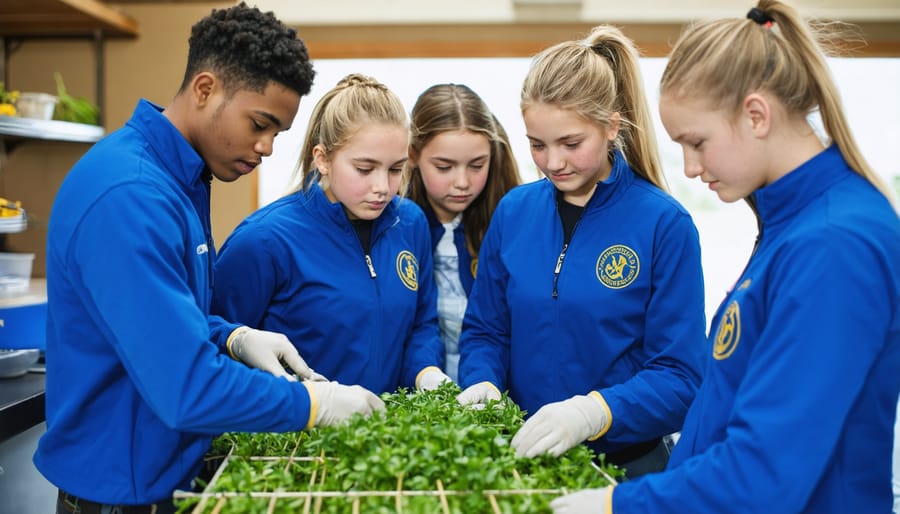
From Traditional Learning to Policy Innovation
Agricultural education in Canada has evolved significantly, moving beyond traditional classroom and hands-on learning to embrace policy advocacy and leadership development. Today’s programs integrate digital farm skills with policy understanding, preparing students to become effective advocates for the agricultural sector.
In Alberta, agricultural education programs now include modules on policy development, environmental regulations, and trade agreements. Students learn to analyze agricultural policies, understand their impacts on farming communities, and develop strategies for engaging with policymakers. This shift reflects the growing need for farmers to participate in decisions affecting their industry.
The transformation has been particularly evident in how young agricultural leaders engage with municipal and provincial governments. Students now regularly participate in policy forums, present research-based recommendations to agricultural committees, and contribute to discussions on sustainable farming practices. This approach has created a new generation of informed advocates who understand both the practical and policy aspects of modern agriculture, ensuring that farmers’ voices are heard in important policy discussions.
FFA’s Role in Sustainable Agriculture
FFA has emerged as a leading force in promoting sustainable agriculture practices across Canada, particularly in Alberta’s diverse farming communities. Through hands-on projects and educational initiatives, FFA members learn cutting-edge techniques in soil conservation, water management, and renewable energy implementation on farms.
Students participate in sustainability-focused Supervised Agricultural Experience (SAE) projects, where they develop and manage environmentally conscious farming operations. These projects often include organic farming methods, precision agriculture technologies, and innovative crop rotation systems that enhance soil health while maintaining productive yields.
Notable initiatives include the Green Communities Program, where FFA chapters partner with local farmers to implement sustainable practices. In Alberta, several chapters have successfully established community gardens that demonstrate water-efficient irrigation systems and natural pest management techniques.
FFA’s commitment to sustainability extends beyond environmental concerns to include economic viability and social responsibility. Through workshops and competitions, members learn to balance profitable farming operations with environmental stewardship, ensuring the long-term sustainability of Canadian agriculture for future generations.
The organization regularly collaborates with agricultural scientists and industry experts to stay current with the latest sustainable farming innovations, making this knowledge accessible to its members and the broader farming community.
Building Tomorrow’s Agricultural Leaders
Policy Development Training
Policy development training within agricultural education programs equips students with essential skills to understand, analyze, and contribute to agricultural policy formation. In Alberta, these programs emphasize hands-on learning through mock policy development sessions, where participants research current agricultural issues and propose evidence-based solutions.
Students engage in structured debates and policy writing workshops, addressing real challenges facing Canadian agriculture, such as water conservation, land use management, and sustainable farming practices. The Alberta Young Farmers and Ranchers program regularly hosts policy development workshops where participants learn to navigate complex regulatory frameworks while considering the interests of various stakeholders.
A notable success story comes from the Olds College Agricultural Policy Institute, where students recently developed recommendations for improving local food security initiatives. Their proposals were subsequently presented to municipal agricultural committees, demonstrating the practical impact of policy development training.
These educational programs typically include:
– Analysis of existing agricultural policies
– Stakeholder consultation techniques
– Policy writing and presentation skills
– Understanding of legislative processes
– Impact assessment methodologies
Through collaboration with industry experts and government officials, students gain valuable insights into how agricultural policies shape the sector. This practical experience proves invaluable for those pursuing careers in agricultural advocacy, government relations, or farm organization leadership. The skills developed through these programs continue to influence agricultural policy decisions across Alberta and beyond.
Environmental Stewardship Programs
Environmental stewardship programs within agricultural education emphasize the critical balance between productive farming and ecological responsibility. These initiatives equip students with practical knowledge of sustainable farming methods, soil conservation, and water management techniques suited to Alberta’s diverse agricultural landscape.
Students participate in hands-on projects that include soil testing, water quality monitoring, and implementing erosion control measures. Through partnerships with local conservation authorities, learners gain real-world experience in sustainable land management while contributing to community environmental goals. These programs often complement urban agriculture initiatives, bridging the gap between rural and city farming practices.
Key components of these programs include:
– Regenerative agriculture techniques
– Integrated pest management systems
– Watershed protection strategies
– Native species preservation
– Climate-smart farming practices
Participants learn to implement environmentally conscious farming methods while maintaining profitable operations. Success stories from across Alberta demonstrate how graduates have transformed conventional farms into sustainable enterprises, often achieving higher yields while reducing environmental impact.
The programs emphasize practical solutions tailored to local conditions, helping farmers adapt to changing climate patterns while preserving natural resources for future generations. This approach has proven particularly valuable in regions facing environmental challenges, where innovative solutions are essential for agricultural sustainability.
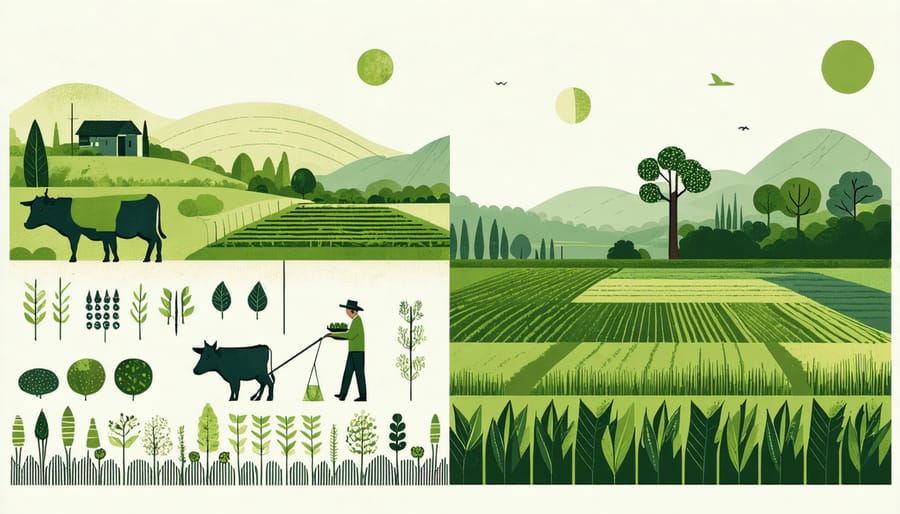
Success Stories: Alberta’s Young Agricultural Advocates

Local Policy Changes
In recent years, Alberta’s agricultural education programs have sparked remarkable student-led initiatives that are reshaping local farming policies. A standout example is the Southern Alberta Youth Agricultural Policy Project, where FFA students collaborated with local authorities to develop sustainable irrigation practices. Their research and recommendations led to the adoption of water-conservation protocols now benefiting over 200 farms in the Lethbridge region.
Building on generational farming knowledge, students from Red Deer’s Agricultural Leadership Program successfully advocated for changes in local land-use bylaws, creating opportunities for young farmers to establish small-scale operations on previously restricted parcels.
The Medicine Hat FFA chapter’s soil conservation initiative stands as another powerful example. Students conducted extensive soil analysis across regional farms, presenting their findings to the municipal council. Their work resulted in new guidelines for cover cropping and minimum tillage practices, which were incorporated into local agricultural development plans.
In Calgary’s peripheral regions, FFA members spearheaded a farm-to-school program that not only enhanced food security but also influenced procurement policies for school districts. The initiative now serves as a model for other municipalities, demonstrating how student advocacy can bridge the gap between agricultural education and practical policy implementation.
These success stories highlight how agricultural education programs empower students to become effective advocates for positive change in their communities, while ensuring policies reflect both innovation and practical farming needs.
Provincial Impact
Student advocacy through agricultural education programs has significantly influenced provincial regulations across Alberta and other Canadian provinces. In 2019, a group of FFA students from Olds College successfully petitioned the Alberta government to revise irrigation guidelines, resulting in more efficient water management practices for small-scale farms.
The impact of student involvement extends beyond policy changes. Through collaborative research projects between agricultural students and industry professionals, several innovative sustainable farming practices have been incorporated into provincial guidelines. For example, in 2021, student-led research on soil conservation techniques led to updated recommendations in Alberta’s Agricultural Operation Practices Act.
Student advocates have also played a crucial role in shaping local food security initiatives. In Red Deer, FFA members worked alongside municipal officials to develop urban agriculture bylaws that now permit small-scale farming operations within city limits. This initiative has become a model for other Alberta municipalities seeking to enhance food sovereignty.
The influence of agricultural education programs on provincial regulations is particularly evident in the area of youth engagement. Student feedback has led to the implementation of mentorship programs connecting experienced farmers with aspiring agriculturists, now mandated in several regional agricultural development plans.
Recent success stories include the adoption of student-proposed amendments to agricultural apprenticeship programs in 2022, making hands-on farming experience more accessible to young Canadians. Additionally, student advocacy has contributed to increased funding for agricultural technology education, with the provincial government allocating $5 million specifically for youth-led agricultural innovation projects.
These achievements demonstrate how agricultural education programs empower students to become effective advocates for positive change in the farming sector, ensuring regulations remain practical and forward-thinking.
Bridging Education and Policy Reform
Collaborative Programs
In Alberta, agricultural education thrives through strategic partnerships between educational institutions and policymakers, creating a robust framework for future farming success. These collaborative initiatives bridge the gap between classroom learning and real-world agricultural practices, with a particular focus on developing community food systems that benefit both urban and rural areas.
Notable examples include the Alberta Agriculture Education Network, which connects schools with local farmers and agricultural professionals to provide hands-on learning experiences. The program has successfully reached over 100,000 students across the province, offering workshops, farm visits, and mentorship opportunities.
The Agriculture and Food Council of Alberta works closely with educational institutions to develop curriculum-aligned programs that reflect current industry needs. These partnerships have resulted in innovative projects such as the Youth Agriculture Education Initiative, which provides students with practical experience in sustainable farming practices while incorporating Indigenous agricultural knowledge.
Post-secondary institutions like Olds College and Lakeland College have established advisory committees that include both educators and industry professionals, ensuring their agricultural programs remain relevant and forward-thinking. These committees regularly review and update course content to reflect emerging technologies and sustainable practices, preparing students for the evolving agricultural landscape.
Through these collaborative efforts, Alberta continues to strengthen its agricultural education system, creating pathways for the next generation of farmers and agricultural professionals.
Future Directions
Agricultural education in Canada is evolving rapidly to meet the challenges of modern farming. Emerging technologies like precision agriculture, drone monitoring, and artificial intelligence are being integrated into curriculum designs across Alberta’s agricultural programs. These innovations are reshaping how we prepare the next generation of farmers and agricultural professionals.
Sustainability and climate-smart agriculture are becoming central focuses, with programs increasingly emphasizing regenerative farming practices and environmental stewardship. Educational institutions are developing specialized courses in carbon farming, water conservation, and soil health management to address growing environmental concerns.
Policy advocacy is gaining momentum within agricultural education, with students actively participating in regional and national agricultural policy discussions. Programs are incorporating leadership training and public speaking components to empower young farmers to become effective advocates for their industry.
Digital literacy and data management are emerging as crucial skills, with new courses focusing on farm management software, digital marketing, and e-commerce solutions for agricultural products. This technological integration helps prepare students for the increasingly digital nature of modern farming operations.
Industry partnerships are expanding, creating more hands-on learning opportunities through internships and mentorship programs. These collaborations between educational institutions and agricultural businesses provide students with practical experience while helping shape curriculum development to meet industry needs.
Looking ahead, agricultural education programs are expected to further emphasize cross-disciplinary approaches, combining traditional farming knowledge with business management, environmental science, and technology skills to create well-rounded agricultural professionals.
Agricultural education stands as a cornerstone for meaningful policy reform in Canada’s farming sector. Through programs like FFA and local agricultural education initiatives, we’ve witnessed how informed and engaged agricultural communities can effectively shape policies that benefit both farmers and consumers. In Alberta alone, graduates of agricultural education programs have gone on to influence regional policies on sustainable farming practices, water conservation, and land management.
The success of these educational initiatives demonstrates that when farmers understand both the practical and theoretical aspects of agriculture, they become powerful advocates for positive change. Our agricultural educators have proven instrumental in bridging the gap between policy makers and farming communities, ensuring that new regulations and guidelines reflect the real-world needs of Canadian farmers.
Looking ahead, the continued investment in agricultural education will be crucial for addressing emerging challenges in our farming sector. From climate adaptation strategies to technological innovation, educated agricultural professionals will lead the way in developing practical, sustainable solutions. The knowledge and skills gained through these programs enable farmers to participate meaningfully in policy discussions, ensuring that future agricultural regulations are both environmentally sound and economically viable.
By supporting and expanding agricultural education programs, we invest in more than just individual farmers – we invest in the future of Canadian agriculture itself. These programs create informed leaders who can advocate for policies that support both traditional farming wisdom and innovative practices, ultimately strengthening our agricultural sector for generations to come.


